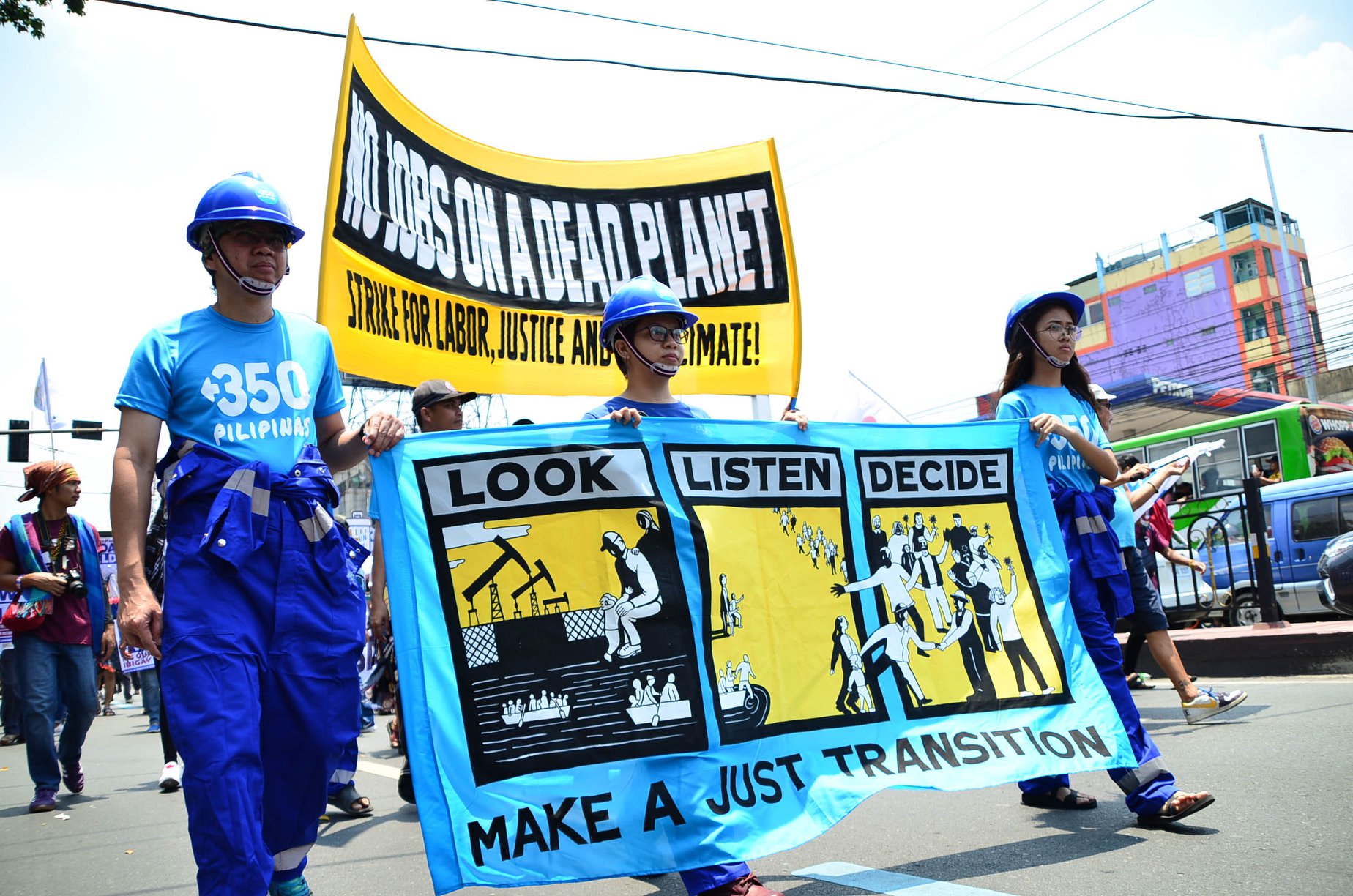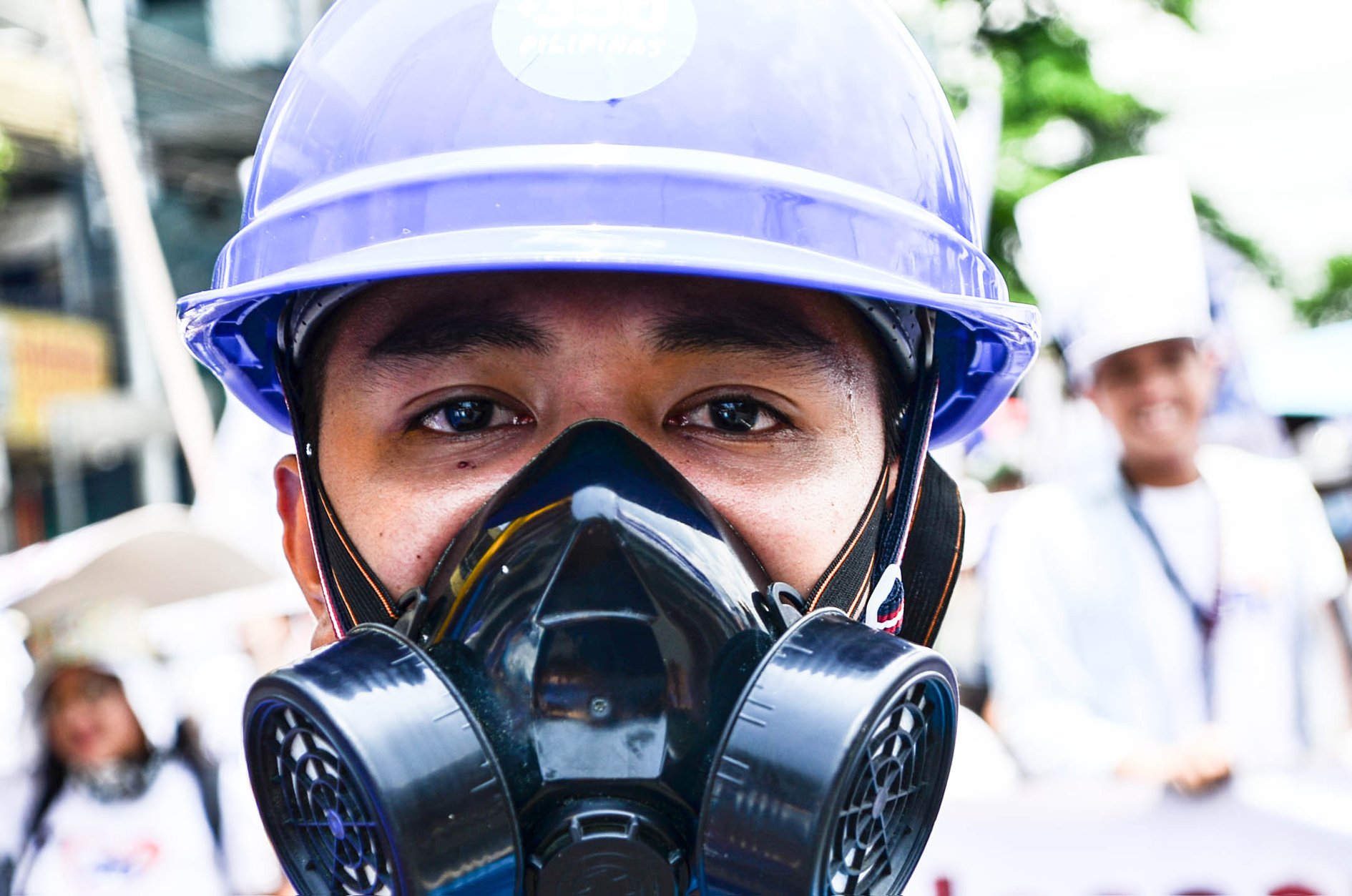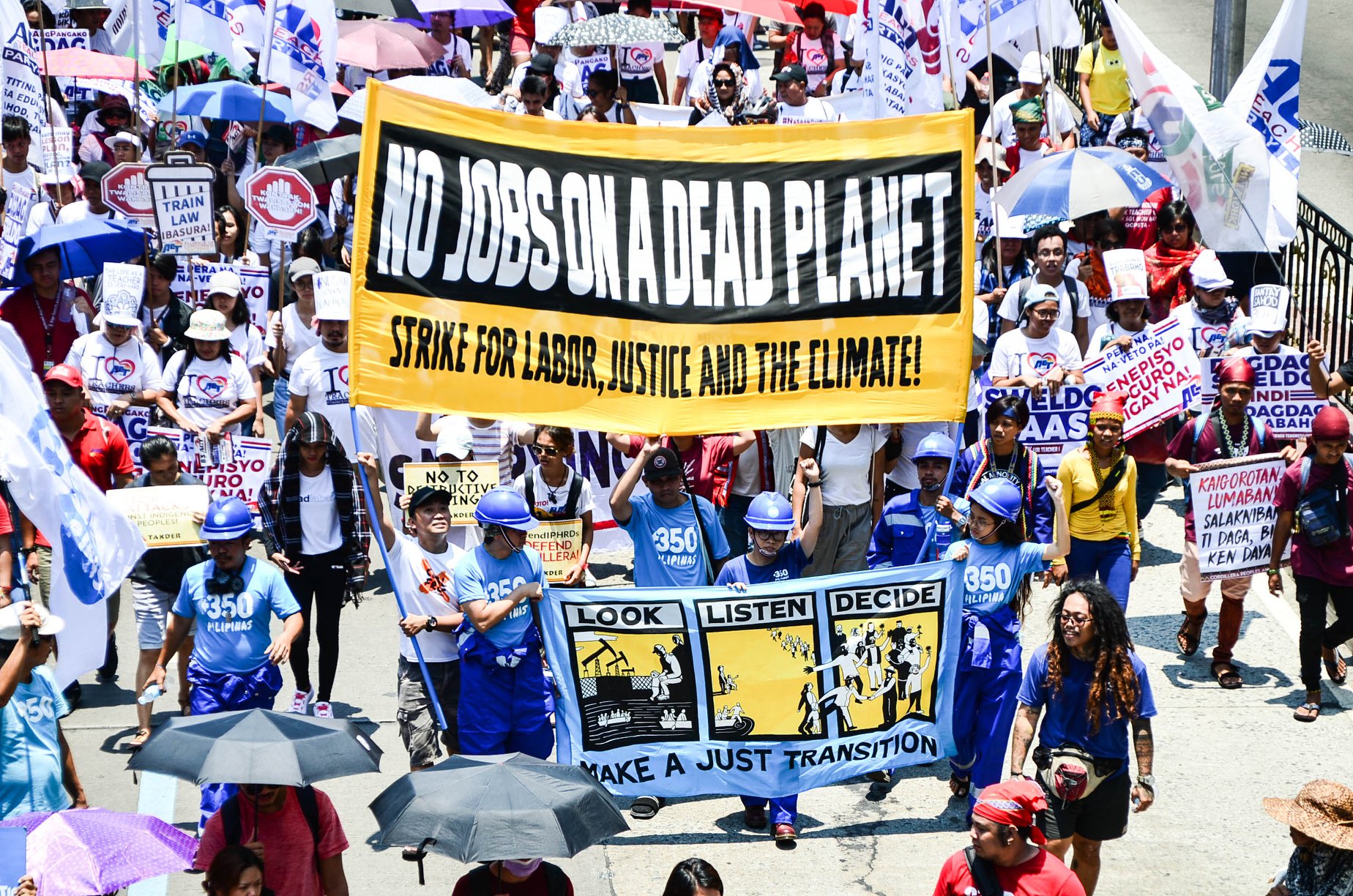Nadia Cruz
Every April 28th, several countries in the world observe the Workers Memorial Day by remembering the lives of the workers that have been lost due to their work. This day raises awareness of the hazards workers face on the daily and how working conditions have resulted in the injuries and even deaths of workers. The Workers Memorial Day calls for health, safety and rights of the workers.
Our advocacy in achieving climate justice acknowledges the necessity to address social injustices in our society. This includes tackling issues related to labor, fair and livable wages, occupational health and safety, and workers’ rights as addressing social injustices is a crucial step towards achieving climate justice

350 Pilipinas joined the #LaborDay2019 march to stand in solidarity with the workers demanding better working conditions and job security, as well as the advancement of a #justtransition away from fossil fuels into renewable energy in the Philippines. Photos: KaLe Luaton and Kathleen Lei Limayo
From May to July 2022, 12 worker deaths were reported in a span of three months. Meanwhile, this year hazardous work and unsafe workplaces have caused 4 worker deaths in a fire incident that broke out in a printing press in Valenzuela.
The question that lies there is that would it be the workers’ fault for working for industries that contribute to climate change or is it someone else?
For the sake of profit, companies lead to the exploitation of the workers as the means of production have been controlled by the few. For a country like the Philippines, many workers who are coerced to work long hours for unlivable wages are often in the hazardous line of work, leading to overuse of natural resources contributing to the climate crisis.
As the climate crisis worsens, it also impacts the workers, working conditions and the communities that they live in.
To name a few, the dangerous consequences of climate crisis for workers include health and safety risks, job insecurity, and economic hardship. Climate change poses direct and indirect health and safety risks for workers, such as exposure to extreme heat, air pollution, and natural disasters. Moreover, it impacts workers economically, particularly those in low-income or marginalized communities, exacerbating food and water insecurities as these communities are often the ones who suffer the most from environmental degradation and climate impacts
With this, we stand in solidarity with the workers to call for safe workplaces, unionized workplaces and justice for the victims of the OSH rights violations.
We believe that a just transition towards a low-carbon economy secures the future and livelihoods of the workers and their communities by providing decent jobs, social protection, greater job security for all workers affected by global warming and climate change policies.
More importantly, it moves towards a climate‐resilient and low‐carbon economy that maximizes the benefits of climate action while diminishing challenges for workers and their communities.


